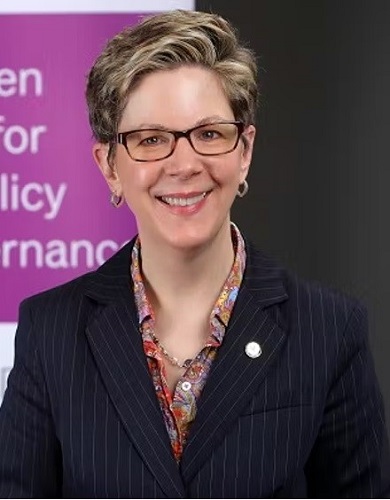Funded studies will explore emotion regulation in children and the impacts of tuition waiver programs for former youth in care
On June 16, 2022, the Honourable François-Philippe Champagne, Minister of Innovation, Science and Industry announced new investments in Canadian social sciences and humanities researchers, including two MSVU recipients: Dr. Jacquie Gahagan and Dr. Jennifer Khoury. These new investments through the Social Sciences and Humanities Research Council (SSHRC) will advance ideas and innovations that seek to improve the lives of Canadians.
“Now, more than ever, social sciences and humanities research plays an integral role as we navigate through the post-COVID-19 reality and continue to build a healthier, stronger and more prosperous Canada,” said Minister Champagne. “These grants enable scholars to address complex issues about communities and societies, and to further our collective understanding so we can build a better future for all Canadians.”
About the MSVU recipients:
Dr. Jacquie Gahagan
Associate Vice-President, Research
SSHRC Partnership Development Grant recipient ($199,858)
Study: An examination of the impacts of tuition waiver programs on access to post-secondary education among former youth in care
 Dr. Gahagan’s grant will support a study that responds to the growing number of post-secondary tuition waiver programs for former youth in care.
Dr. Gahagan’s grant will support a study that responds to the growing number of post-secondary tuition waiver programs for former youth in care.
Dr. Gahagan will explore the ways in which tuition waiver programs across Atlantic Canada are impacting the lives of recipients and how these programs are related to advancing PSE institutional commitments to gender-based analysis (GBA+), and Equity, Diversity, Inclusion, and Accessibility (EDIA), among other considerations. Black, Indigenous and lesbian, bisexual, gay, transgender, queer, and two-spirit (LGBTQ2S) youth are overrepresented in the foster care system and under-represented in available data on attendance at and completion of PSE in Canada. [More: Youth who grew up in care have the right to post-secondary education — and tuition waivers open doors – The Conversation]
There is a growing national interest in understanding how interventions such as tuition waiver programs can reduce structural barriers experienced among former youth in care in accessing post-secondary education. In November 2020, MSVU became the first Atlantic university to launch a tuition waiver program for former youth in care. Several other Atlantic post-secondary institutions announced similar programs in the months following.
Dr. Gahagan’s research offers a unique opportunity to determine how tuition waiver programs in the Atlantic region are meeting the needs of recipients. It’s an opportunity to identify potential program improvements toward further addressing barriers to post-secondary education among former youth in care.
Former youth in care, such as those who lived in foster care or other aspects of the child welfare system in Canada, often experience significant health, social, and economic disparities. These disparities can have lifelong consequences. Tuition waiver programs are one means of reducing financial barriers to postsecondary education. These programs are on the increase across Canada, including in the Atlantic region. However, there is not yet data available on the ways in which tuition waiver programs in Nova Scotia are impacting recipients.
Dr. Jennifer Khoury
Canada Research Chair in Interdisciplinary Neuroscience (Tier II) and Assistant Professor, Psychology
SSHRC Insight Grant recipient ($249,610)
Study: A multi-method and multi-caregiver study to understand the socialization of child emotion regulation and social-emotional development within family and early education contexts
 Dr. Khoury’s grant will support an interdisciplinary and comprehensive study of the factors that shape the development of emotion regulation (ER) and broader social-emotional development in children.
Dr. Khoury’s grant will support an interdisciplinary and comprehensive study of the factors that shape the development of emotion regulation (ER) and broader social-emotional development in children.
Emotion regulation (ER) is the ability to initiate, maintain, and modulate the experience and expression of emotions. ER is an essential component to daily functioning, social relationships, and well-being. Early childhood is a critical time for establishing ER abilities and laying the foundation for future social-emotional growth. Difficulty regulating emotions is linked to a range of negative outcomes, including deficits in social skills, delays in school readiness and later academic success, and risk for mental and physical health problems.
Theory and research indicate that ER develops within an interpersonal context and, particularly early in life, socialization of ER occurs within caregiver-child and teacher-child relationships. To date, most research in this area has focused on one caregiver or teacher and captured only a single component of childhood ER (e.g. behavioural or neurophysiological). Dr. Khoury’s study will detect the unique parent, early childhood educator, and child characteristics critical in shaping child ER and broader social-emotional development, including neurophysiological markers of emotion regulation (obtained through electroencephalography).
Cultivating child ER has widespread implications for child development. Findings from this study will inform integrated early childhood services, family-based interventions, and early childhood education curriculum, as well as provide a needed evidence base to inform policy makers and service providers in how to foster early child ER and social-emotional development.
Fostering early childhood ER and social-emotional development is a national priority, illustrated by $30 billion in funding included in the Canada-wide Early Learning and Child Care initiative.
The above-noted studies are also supported by the MSVU Research Support Fund.